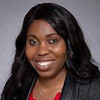
Replies

Shirnel December 27, 2019
I learned this technique with Powerscore, and if I hadn't learned it with that resource, following the LSAT Max facilitator's explanation would've been challenging. Though this is a pure memorization technique, one still needs to understand the method to memorize it.BenMingov January 15, 2020
Hi Shirnel, thanks for bringing this up.Let me try to explain this the way I understand it myself.
There are four basic ideas in terms of true/false:
1) Must be true
2) Must be false
3) Could be true
4) Could be false
Each of these terms has synonyms that I'll cover now.
1) Must be true (Cannot be false)
2) Must be false (Cannot be true)
3) Could be true (Not necessarily false)
4) Could be false (Not necessarily true)
The bracketed items are those synonyms. ^
There is the idea of logical opposites that we want to consider.
Here are the two pairs of logical opposites:
1) Must be true (Cannot be false) vs. Could be false (Not necessarily true)
2) Must be false (Cannot be true) vs. Could be true (Not necessarily false)
Understanding logical opposites is important for a few reasons.
If a question asks you "Could be true", then the correct answer will be something that "could be true" while the 4 incorrect answers will be the logical opposite, "Must be false"
If a question asks you "Must be True", then the correct answer will be something that "Must be true" while the 4 incorrect answers will be the logical opposite, "Could be false"
Another scenario that tests your understanding of logical opposites is when the question stem uses "LEAST" or "EXCEPT". This forces you to find the logical opposite of what was asked in the question stem.
E.g. Each of the following must be true, EXCEPT.
It is up to you to see that the question stem uses "must be true" and "EXCEPT", which converts this question to its logical opposite "Could be false".
Now, the correct answer will be "could be false" and the four incorrect answers will be "must be true"
What was also mentioned in the video was that many people find it easier to only deal with questions in terms of "true".
This would mean if a question asks you "must be true" or "could be true", you say thank you and understand it as they gave it to you.
But if they asked in terms of "must be false" or "could be false", you have the option to convert these statements into "cannot be true" and "not necessarily true" respectively.
Again, this is definitely not a necessary process for succeeding. It's something that people often find easier, and that's why it was offered. I personally do not do that mental conversion.
I hope this helps! Please let me know if you have any other questions.